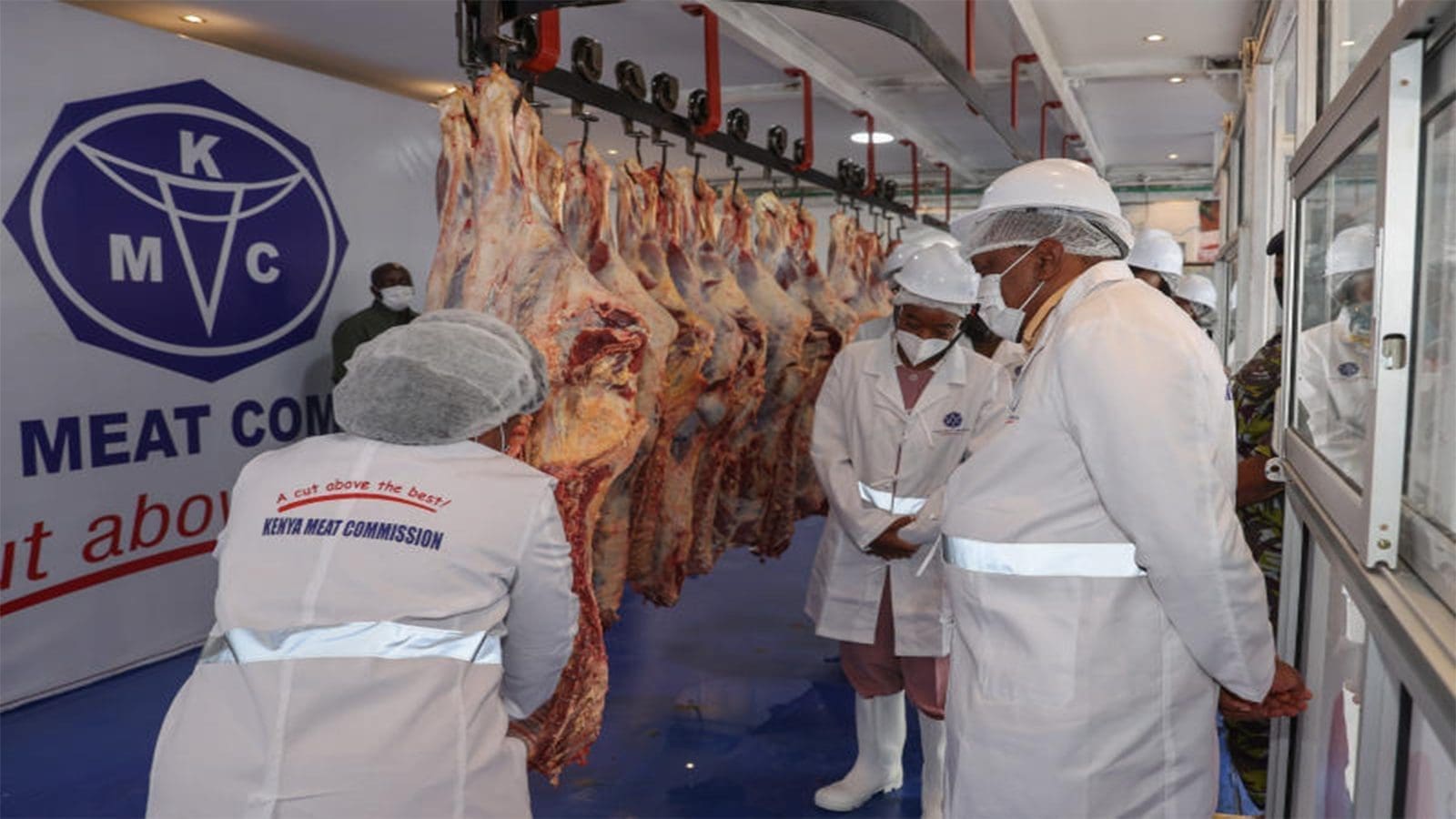KENYA – The Meat Training Institute (MTI) has during the graduation ceremony of 57 KMC employees, lauded the Kenya Meat Commission (KMC) for ensuring that the meat sector delivers quality meat to the Kenyan citizenry and the export market.
Speaking at the MTI graduation ceremony, MTI Principal, Salome Kairu said the institution’s vision was to train personnel from meat trade and industry in hygienic production, inspection and processing of meat and meat products.
“I want to single out the contribution of the Kenya Meat Commission over the years in the training of meat handlers and meat processors in Kenya and beyond. The collaboration in this endeavour has been a strong one.
“The purpose of the graduation ceremony was to mark the successful completion of the Slaughter House Attendants’ Pilot Course by staff of the Kenya Meat Commission,” said Dr Kairu.
She said that KMC, whose slogan is “Cut above the best,” had freely offered to let the college use its facilities for practical training, as reported by Kenya News Agency.
The effective training of 57 KMC employees in the course for slaughterhouse attendants, according to Dr. Kairu, was evidence of the KMC administration’s strong cooperation and dedication to the livestock sector’s long-term goals.
“There is strong evidence of support of the livestock sector by the Kenya Meat Commission in other areas too. These include absorption of a good number of graduates and former staff of the Meat Training Institute, both young and older in the jobs available at the KMC who we believe is instrumental in further, in-house training of slaughter personnel,” she said.
She said the slaughterhouse attendants’ course was appropriate for KMC staff as it had provided them with the skills to participate in slaughterhouse operations like slaughtering cattle, sheep and goats.
“This is an animal welfare issue that is regarded with utmost importance globally, hygiene practices in the slaughterhouse, a food safety issue, knowledge on the value of slaughtering food animals hygienically.
“Knowledge on the value of hygienic transportation of meat and knowledge on the value of slaughterhouse by-products like blood, manure, horns, bones and their proper handling,” said Kairu.
Brigadier James Githaiga, the Managing Commissioner of the KMC, stated that the commission had established a Memorandum of Understanding (MoU) with MTI based on competency-based education and training through scheduled and targeted training for KMC personnel skill development.
“Today graduands of the slaughter house attendant course stand out as the pilot course output of the KMC and MTI agreement,” Githaiga said during the graduation ceremony.
He said the training was meant to impact necessary skills, which will create career growth, motivate staff and increase work efficiency, impact slaughtering skills of cattle and goats, build capacity for the trainees to effect hygienic processes and practices in the slaughterhouse.
“The training is also intended to enforce proper inspection, grading and processing of meat and meat products in line with KMC’s business mantra, ‘A Cut Above the Best!’, foster career growth, and contribute to reduction of the national meat post-harvest loss by proper hygienic handling,” said Githaiga.
14 percent of meat per animal is lost during slaughter time nationally, he added.
Staff placement created skills gap
KMC was created on June 1st, 1950 through an Act of Parliament, Cap 363 of the Kenyan laws.
A decision by former President Uhuru Kenyatta dated September 7, 2020 shifted the KMC’s ministerial authority from the Ministry of Agriculture, Livestock, and Fisheries to the Ministry of Defence.
“To ensure full operationalisation, a turnaround strategy was laid down with requisite processes, policies and systems put in place. This included establishment of a robust KMC human resource policy/programmes and instruments through the guidance and expertise from the public service,” Githaiga said.
He explained that staff placement created gaps in general procedures, necessitating training to improve career advancement, efficiency, and production effectiveness. He praised the KMC Board of Commissioners for approving the program’s implementation.
“I thank the MTI management and fraternity for your commitment to offering the lessons out of your busy schedule and giving it at a discounted rate in terms of fees, I thank the KMC management and the families for supporting the staff during the entire training duration,” Githaga said.
In order to ensure professionalism, effectiveness, and efficiency in operations, KMC will work with MTI to develop additional training programs and specialized courses for the graduates. The Commission will also teach other KMC staff members and departments.
For all the latest food safety news from Africa and the World, subscribe to our NEWSLETTER, follow us on Twitter and LinkedIn, like us on Facebook and subscribe to our YouTube channel.









Good job and I do like this..